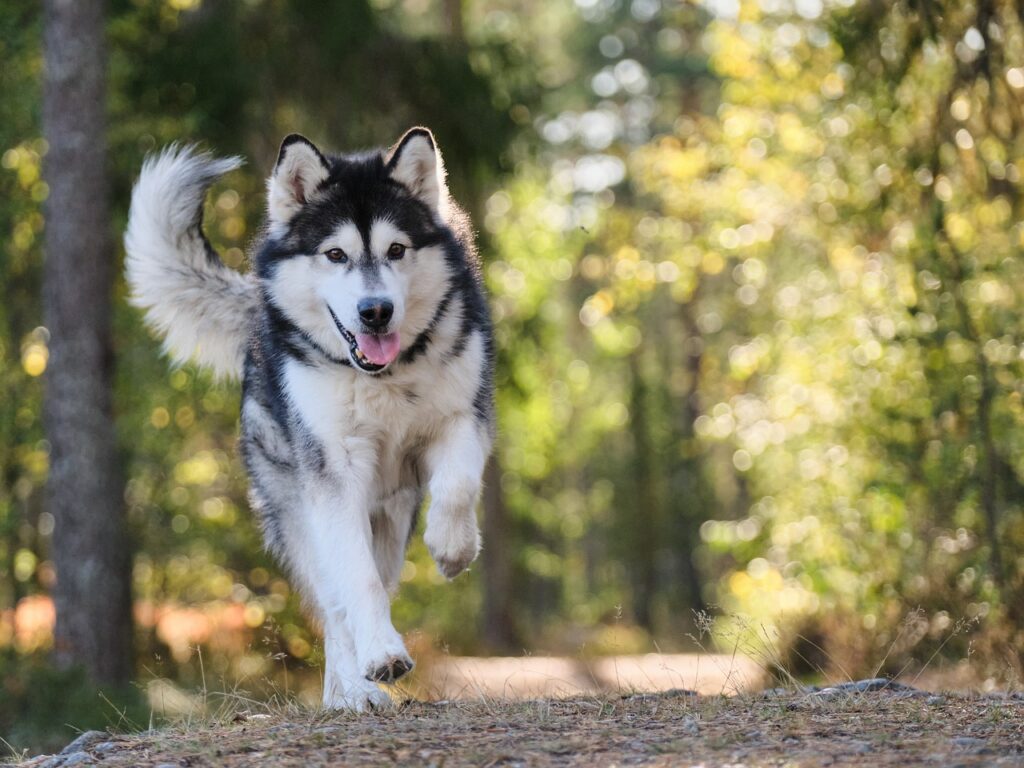Can Dogs Eat Pizza? – No, They Can’t
Dogs might drool over the smell of a hot slice of pizza, but it’s a human treat they’re better off without. No, dogs should not eat pizza because of its high sodium content, potential toxic ingredients like garlic and onions, and possible lactose intolerance issues due to cheese. Pizza, as a fast food, is designed for human consumption and does not cater to the dietary needs of dogs. It may lead to obesity, gastrointestinal upset, or more severe health issues if consumed regularly or in large quantities.
Can Puppies Eat Pizza?
Like their adult counterparts, puppies should also steer clear of pizza. The answer is a resounding No. Puppies have an even more sensitive digestive system and their developing bodies can’t handle the rich and varied ingredients found on a typical pizza. Consuming pizza can lead to immediate digestive distress for a puppy, and regular intake can cause long-term health issues, including obesity and imbalanced nutrition.
Why is Pizza Harmful for Dogs?
Pizza is a tapestry of tastes and textures that appeal to humans but can be harmful to dogs. Let’s delve into the primary dangers posed by this popular dish when it falls into the paws of our canine friends.
High Fat and Sodium Content
Pizza is laden with cheese and often includes high-fat meats, like pepperoni or sausage, that can increase the risk of pancreatitis in dogs. Pancreatitis is a painful and potentially life-threatening condition. Moreover, the high sodium content present in pizza and its toppings can lead to salt toxicity, especially worrying in smaller breeds or dogs with pre-existing heart conditions.
Lactose Intolerance
Many dogs are lactose intolerant to some degree, and the cheese on pizza can cause gastrointestinal upset, including diarrhea and vomiting. While a small lick of cheese could be harmless for some dogs, the amount found on a slice of pizza is far beyond what most canine stomachs can handle.
Toxic Ingredients
Common pizza toppings such as onions, garlic, and certain spices are toxic to dogs and can lead to serious health issues like anemia or gastrointestinal distress. Dogs do not process these foods the same way humans do, making them dangerous if ingested by our four-legged friends.
Symptoms to Watch Out For After Dogs Consume Pizza
- Upset Stomach: Keep an eye out for signs of abdominal pain, diarrhea, and vomiting as they can indicate that your dog’s stomach is struggling with the ingredients in pizza.
- Lethargy: If your dog seems unusually tired or unresponsive after nibbling on pizza, it could be a sign of a more severe reaction, possibly related to toxic ingredients or pancreatitis.
- Excessive Thirst and Urination: This may signal that the sodium in pizza is affecting your dog, potentially leading to salt toxicity which requires immediate veterinary attention.
Immediate Steps to Take if Your Dog Eats Pizza
- Remove Pizza: Make sure no more pizza or other potentially harmful food is within your dog’s reach.
- Contact Your Vet: If your dog has consumed pizza, especially if it contains toxic toppings, call your veterinarian immediately for guidance.
- Observe Closely: Watch your dog for any additional symptoms and be ready to provide details to your vet about how much and what kind of pizza was consumed.
Safe Alternatives to Pizza
While pizza is dangerous for dogs, there are safe alternatives that they can enjoy. Consider offering your dog these safer food options instead:
- Carrots – A crunchy and nutritious snack that’s low in calories and high in fiber and vitamins.
- Apples – Apples (without seeds) provide a sweet treat that’s full of important vitamins and can help clean residue off a dog’s teeth.
- Sweet Potatoes – Cooked sweet potatoes are a great source of dietary fiber, vitamin B6, vitamin C, and beta-carotene.
Conclusion
In conclusion, though sharing food with our furry friends can be tempting, pizza should never be on the menu for dogs. The high fat and sodium content, potential lactose intolerance issues, and risk of toxic ingredient consumption make pizza a no-go. Responsible pet owners should remain vigilant and keep such human food out of reach while offering healthier and safer alternatives to ensure the well-being of their dogs.
Frequently Asked Questions
What should I do if my dog accidentally eats pizza?
If your dog eats pizza, monitor them for any signs of illness and consult your veterinarian for advice, especially if toxic ingredients were present.
Can pizza cause long-term issues in dogs?
Yes, regular consumption of pizza can lead to obesity, dental problems, and chronic diseases such as diabetes or pancreatitis in dogs.
Are all pizza toppings dangerous for dogs?
Most pizza toppings are not suitable for dogs. Specifically, ingredients like onions, garlic, and processed meats are toxic and should be avoided completely.
Can I give my dog a tiny bit of pizza crust?
While a small piece of pizza crust may not be immediately harmful, it is not recommended as it provides no nutritional value and may lead to unhealthy habits.

